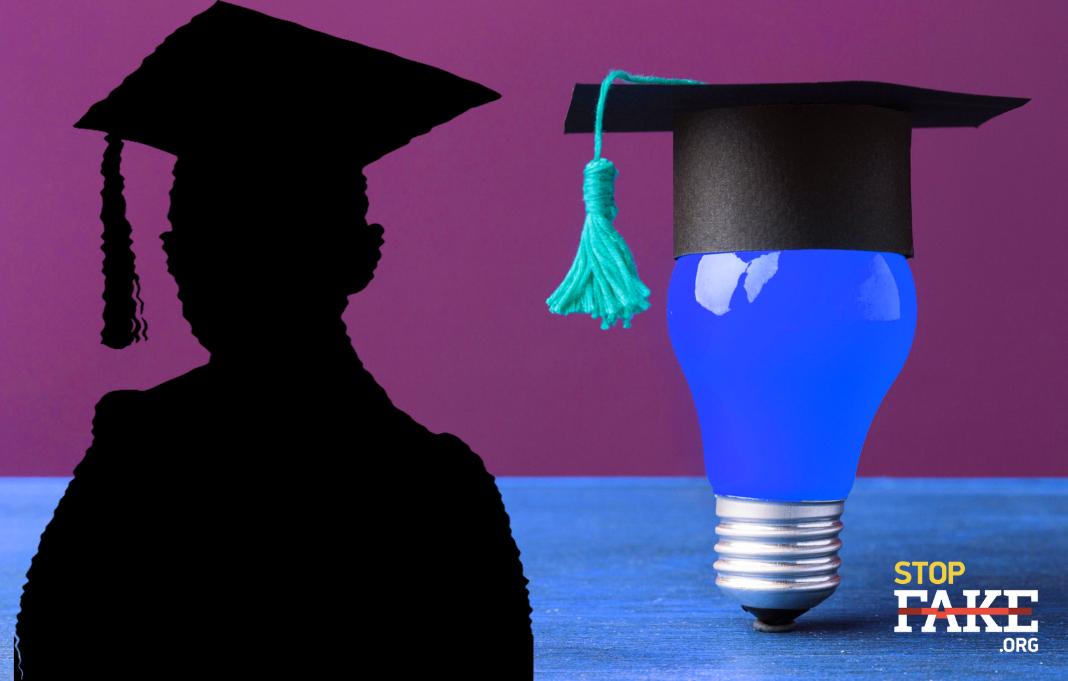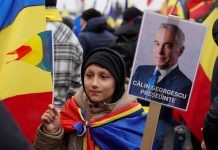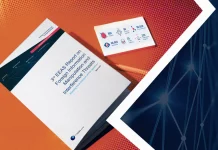By Olha Kovalska
With the outbreak of Russia’s full-scale invasion of Ukraine, European governments, as well as individual universities, have established emergency funds to support students and staff from Ukraine.
All the statements condemn Russia’s war against Ukraine and declare full support for Ukraine and Ukrainians. All decorated with blue and yellow on top. Yet, within the same ‘Solidarity with Ukraine’ campaign, a great part of Western academia surprisingly extended its support to Russians and Belarusians.
And the support’s raison d’etre ranges from a purposeful belief that ‘Russians are suffering too’ to an explicit refusal to admit the ‘ordinary Russians’ fault in what has become a major war in Europe since WW2.
Academic ‘Mother Teresa’ or Unbearable lightness of moral relativism
Western academia seems to deliberately design a common group of victims of the war ‘in the region’. Though no one would doubt that it is solely Ukrainians who are dramatically suffering from a barbaric assault on their homeland, Russians and Belarusians are utterly welcome to jump on the bandwagon of universal support and European solidarity:
- École normale supérieure Paris-Saclay sent a “message of support… to Ukrainian and Russian students”[1]
- Another French high-ranking university set up “a support unit … for our Ukrainian, Russian and Belarusian communities”[2]
- Freie Universität Berlin provides aid “for at-risk and refugee students and researchers from Ukraine, but also from Belarus and Russia”[3]
- The University of Manchester has “written to all Ukrainian, Russian and Belarussian staff and students to let them know about the services they can access”[4].
Hence, one gets an impression that Ukrainian, Russian, and Belarusian students are all equally affected by ‘Putin’s war in Ukraine’. Alongside Ukrainians, Russians have become ‘the victims of the war’ who are suffering from the Russia-waged aggression and thus deserve Western solidarity. To say the least, by implicitly equalising Ukrainians and Russians in this matter, Ukrainian pain is immorally diminished – and it gets trivial for Western observers.
Various countries, numerous universities, but the same message:
- Austria: solidarity “with all people in Ukraine and Russia who are suffering from this war”[5]
- Netherlands: support to “Ukrainian and Russian students who have been negatively affected by the war”[6], responsibility“towards all our students, … students from Russia and Belarus can therefore also apply to the fund”. A request to include the latter was issued by the Ministry of Education, Culture and Science for all Dutch universities.[7]
- Switzerland: “protectUkrainian and Russian researchers and students at Swiss universities”[8], support to students and staff “from Ukraine and Russia” and a deep concern “for all persons affected by the conflict and suffering from its consequences”[9]
- UK: “all those affected by the conflict – Ukrainian citizens having to flee their homes…, and also Russian citizens taking a brave stand against the war”[10].
Another great example here is Ruhr University Bochum in Germany which promotes ‘reconciliation’ among Ukrainians and Russians. It reminds the recent cross-holding efforts by the Holy See: not only the administration fails to differentiate between the invader and the invaded at times of the barbaric Russian aggression against Ukraine, but shockingly delivers a privileged right to speak about the war first to a Russian student, who is saying that “[there are no] Russians or Ukrainians… but exclusively ‘Studienbrücke students’”[11]. Transmitting such statements at times of war is entirely crass towards Ukrainians and tantamount to aiding and backing Kremlin propaganda.
German universities somehow seem to take the lead in this matter. While stating its concern ‘to show solidarity towards Ukraine’,Osnabruck University repeatedly talks about ‘those affected by the war in Ukraine’ while not openly bringing out who are those. Ukrainians? Or someone else? An answer would surprise you: students from Russia go first on the list[12]. Given that Russians in Western academia prevail in numbers over Ukrainians, who gets more of the German sunlight is not in question.
All in all, European universities are committed to helping Russians out and supporting them financially alongside Ukrainians. They somehow do not see the reasons behind these outrageously different situations. And oldest top universities, such as the University of Cambridge or Leiden University, seem to go blindest here: they support “students from Ukraine and Russia who have been impacted financially by the war on Ukraine”[13]; “[alongside Ukrainians, Russians face financial problems as they] can no longer access their bank accounts”[14].
No fault, no guilt… No shame?
Russians ‘hold no responsibility of their own’ in this war, declares Western academia and says it loudly and proudly. Just a few examples:
- University of Amsterdam: “In addition to students from Ukraine, students from Russia and Belarus can also apply to the fund. They form part of our academic community and are not held personally responsible for the Russian invasion”[15]
- The Norwegian Ministry of Higher Education: “offering financial security to Ukrainian, Russian, and Belarusian students… [as] Russian and Belarusian students… share as little responsibility for the war as you or me”[16]
- Board of Swiss Universities: “the entire scientific community in Russia must not be affected by this war through no fault of its own… [and we are] therefore in favor of supporting institutions as well as researchers and students in Russia who are suffering from the current situation”[17].
- University of Zurich and University of Lucerne repeat the same mantra of ‘likewise Ukrainians, we support Russians’ and ‘situation of no fault of their own’[18],[19].
A question is – are those openly backing the war, like the MGIMO students in the famed video[20] or the Russian Union of Rectors who signed the pro-war statement[21], suffering from the current situation too? Have Western scholars and university staff so devotedly protecting their counterparts in Russia seen it?
Some Dutch universities go beyond that and focus on how much ‘Russians are devastated by the war’[22] and how unjustly they are treated now. “It is Putin’s war, not Russia’s war”[23], a Russian professor and a student repeat. But what one or two Russians say is in fact not relevant – there is no evidence to back their claims. Instead, we know about blatant 81% who support the actions of the Russian armed forces in Ukraine and many others who for various reasons preferred to stay mute.[24] So, why should one excessively focus on those ‘good Russians’ thus giving a carte blanche to all of them? The manipulative narrative by the Dutch academia is infantilising Russians as if they are not responsible for their government who blessed mass killings and numerous war crimes if not genocide perpetrated in Ukraine by the Russian army that ‘ordinary Russians’ are massively backing.
Last but not least. Students of the ONCAMPUS pre-entry courses at the University of Amsterdam have recently received a letter from the administration. And this episode is definitely worth reading:
“None of our Russian students has voted for Putin or contributed to the war. The world isn’t black and white and I would like some of you to consider it… As for your personal social media accounts – freedom of speech is not unlimited. If you post hateful posts and Instastories you may be reported and banned. Think whether this is how you want to be seen and whether this is who you are: a hateful person that wants to live in an echo chamber and uses sweeping, hurtful and unfounded generalisations about other, especially those who think differently than you do.
I have heard that some people feel offended that the UvA support system is extended to Ukrainian, Russian, and Belarusian students. What we know is that ordinary people who wish to get good education and work opportunities also happen to have Russian passports and some of them experience financial difficulties just as many Ukrainians do. Why should they be punished for the decisions of Putin and the like? Empathy and support are, and should be, extended to everyone who needs it. Condemning the war doesn’t mean that we should not support those who are victims of it – on both sides of the proverbial barricades.”
Leaving aside the administration’s motives to send this grotesque message, to its Ukrainian students among others, many tactical questions could be asked. So, how do they know their students haven’t voted for Putin? Not contributing to the war – so not paying taxes, e.g., not going back to Russia and never buying anything there? Have they scrutinised Russians’ profiles before accusing others of hatred? So, Ukrainians and all the others are hateful persons now? Empathy and support for Russians situationally profiting from Ukrainians’ horrors? Russians – victims of the war?… At best, this mail is an error of judgement on behalf of the ONCAMPUS. At worst, it is nourishing Russia’s disinformation machine by spreading absolutely tactless and corrupt confusion and division.
Empire We strikes back
Needless to say, such offensive narratives of Western academia have already provoked a huge wave of indignation among Ukrainian students, alumni, and scholars. The latter are shocked and horrified by Western blindness: “programs that treat as equal victims Ukrainian and Russian students make a huge mistake. Russian students even those who take part in protest risk imprisonment. Ukrainians are under the threat of death. It’s a huge difference.”[25] Those Ukrainians who have studied or study now in the West justly stress[26] that presenting Ukrainians and Russians as a unique group of war victims is immoral and humiliating for Ukrainians.
A Ukrainian MP has also approached several European universities[27] explaining why mixing Ukrainians and Russians/Belarusians should not take place in the academia: it not only devalues the disastrous horrors Ukrainians live through now but also leaves a huge space for manipulations of Russians who are backing the war but are not technically forbidden to apply and get support.
Students, as well as local associations of Ukrainians in various EU countries have also reacted, as the Foundation “Ukrainians in the Netherlands”. They sent numerous letters to the Dutch universities, yet received a response that the universities would support all the students ‘regardless of their nationality’. An appeal was also sent to the Ministry of Education, Science and Culture of the Netherlands, yet it remains unanswered. The various academic institutions, as well as ministries, stay shamefully deaf.
In Ukraine, the academic community and alumni of Ukrainian and Western universities have recently launched a similar appeal too. More than 250 signatories have already supported it asking for “solidarity funds… [to] no longer benefit citizens of the aggressor country which must not be equalizing with Ukrainians, the only party directly affected by this war.”[28]
The Western academic world has to finally acknowledge that it is no more possible to hide behind the relaxing yet abhorrent half-truths. It is critical to produce accurate narratives and finally break the spine of a Russian imperialistic perspective at times of the brutal and cynic war waged by Russia against Ukraine.
Olha Kovalska works in a Czech-based NGO that supports Ukrainian civil society. Volunteer. An alumna of Kyiv-Mohyla Academy; Charles University, Leiden University, UPF.
[1] https://ens-paris-saclay.fr/en/actualite/solidarity-ukrainian-people
[2] https://newsroom.univ-cotedazur.eu/solidarity-and-support-for-universities-in-ukraine
[3] https://www.fu-berlin.de/en/universitaet/ukraine/faq/index.html
[4] https://www.manchester.ac.uk/ukraine-response/
[5] https://www.mci.edu/en/media-en/news/4089-solidarity-ukraine
[6] https://www.erasmusmagazine.nl/en/2022/03/07/higher-education-institutions-support-both-ukrainians-and-russians/
[7] https://www.uva.nl/en/current/ukraine/ukraine.html#Besides-help-for-Ukranian-students-why-are-you-also-helping-Russian-and-Belarusian-students
[8] https://www.swissuniversities.ch/en/news/impact-of-the-war-in-ukraine-on-cooperation-with-russian-researchers-and-students
[9] https://www.bfh.ch/en/news/ukraine/
[10] https://www.ncl.ac.uk/press/articles/latest/2022/03/ukraine/
[11] https://news.rub.de/english/2022-03-15-studienbruecke-solidarity-difficult-times
[12] https://www.uni-osnabrueck.de/en/solidarity-towards-ukraine/
[13] https://www.cambridgestudents.cam.ac.uk/fees-and-funding/financial-assistance/special-hardship-fund
[14] https://www.universiteitleiden.nl/en/news/2022/03/support-the-ukrainian-and-russian-students-in-leiden-and-the-hague
[15] https://www.uva.nl/en/current/ukraine/ukraine.html#Besides-help-for-Ukranian-students-why-are-you-also-helping-Russian-and-Belarusian-students
[16] https://www.regjeringen.no/en/aktuelt/regjeringen-gir-okonomisk-trygghet-til-ukrainske-russiske-og-hviterussiske-studenter-i-norge/id2904949/
[17] https://www.swissuniversities.ch/en/news/impact-of-the-war-in-ukraine-on-cooperation-with-russian-researchers-and-students
[18] https://www.uzh.ch/cmsssl/en/about/global/solidarity-with-ukraine.html
[19] https://www.unilu.ch/en/news/solidarity-with-ukraine-6593-1/
[20] https://www.youtube.com/watch?v=pT5i5GHOX_g
[21] https://www.rsr-online.ru/news/2022-god/obrashchenie-rossiyskogo-soyuza-rektorov1/
[22] https://www.erasmusmagazine.nl/en/2022/03/07/higher-education-institutions-support-both-ukrainians-and-russians/
[23] https://www.utoday.nl/news/71088/concerns-among-russian-ut-employees-this-is-putins-war-not-ours
[24] https://www.levada.ru/en/2022/04/11/the-conflict-with-ukraine/
[25] https://www.facebook.com/yuliya.yurchuk/posts/10160285055159766
[26] https://www.facebook.com/100001708409237/posts/5000188786714685
[27] https://www.facebook.com/sovsun.inna/posts/401568205129265
[28] https://docs.google.com/document/d/1ReYEIQ2wuj1jFrE2G06GkvUGxG15YkKBoqFQaA6eChc/edit





